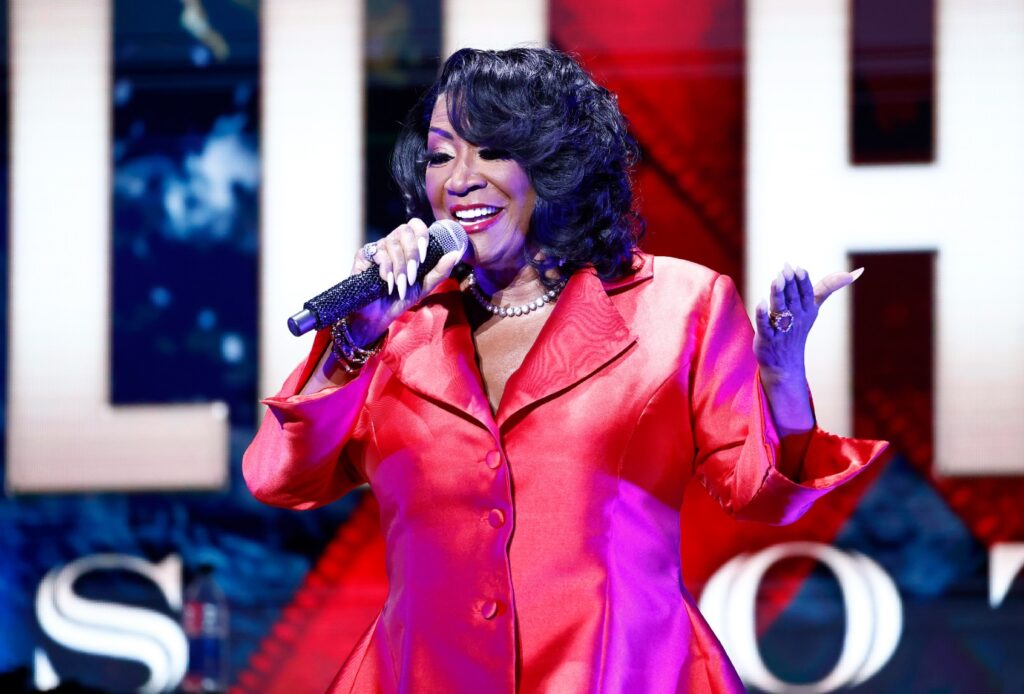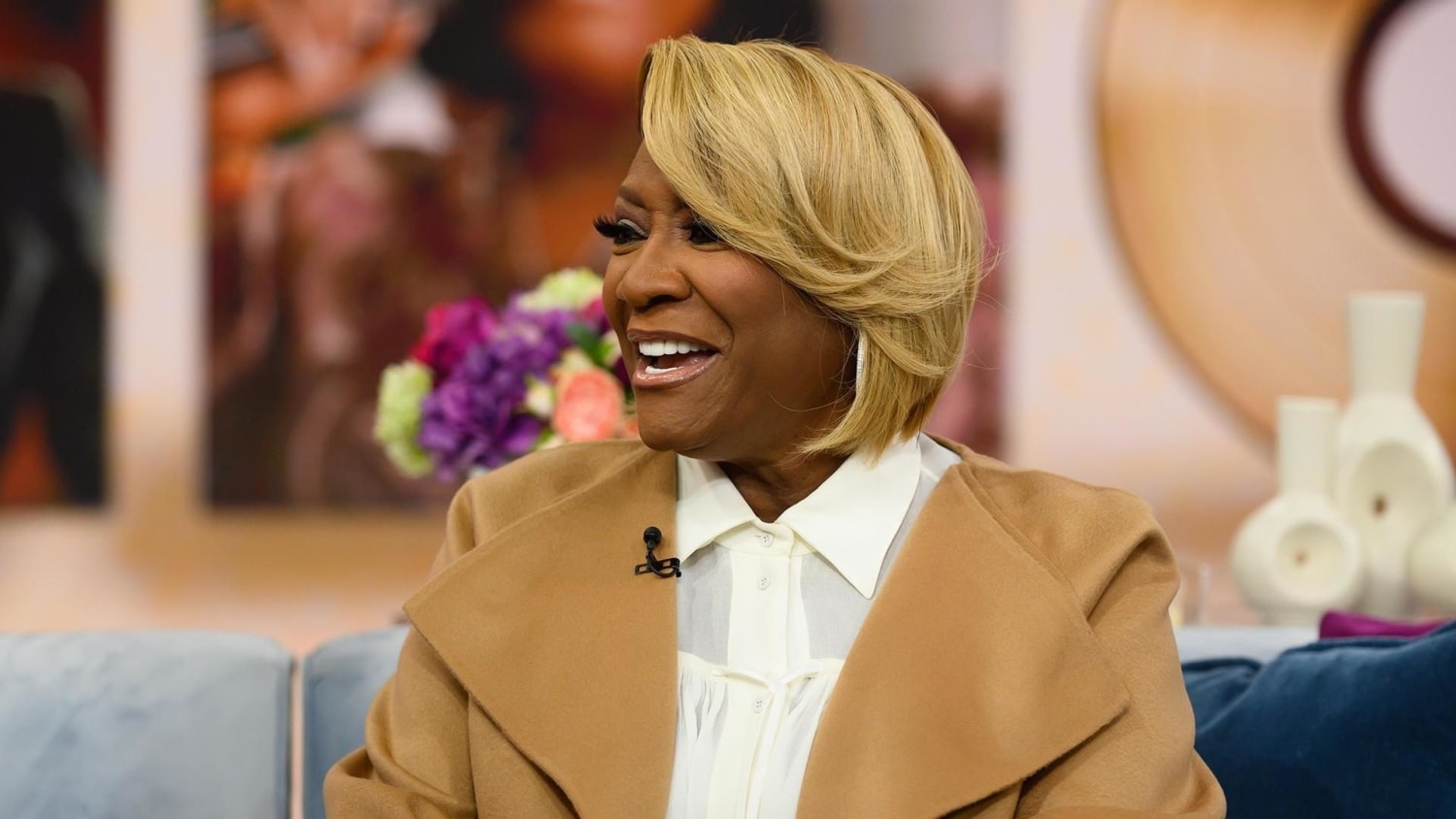BREAKING: Mike Johnson Reveals Chuck Schumer demanded $4 million for…
BREAKING: Mike Johnson Reveals Chuck Schumer demanded $4 million for…

House Speaker Mike Johnson revealed on Tuesday that Democrats are demanding billions in wasteful and ideological spending, including $3.9 million for LGBTQI+ democracy grants in the Western Balkans, as part of their conditions to reopen the government.
Speaking on the 14th day of what he called the Democrat government shutdown, Johnson said the American people are suffering because Democrats have chosen politics over responsibility.
“Welcome to day 14 of the Democrat government shutdown,” Johnson said during his press briefing. “It’s two weeks of Democrats in Congress inflicting untold pain on the American people for nothing other than pure politics.”
Johnson explained that House Republicans had already offered a clean continuing resolution to keep the government funded, but Democrats repeatedly rejected it.
Instead, he said, Democrats are tying unrelated left-wing priorities to essential government operations in an attempt to strong-arm Republicans into approving radical spending measures.
He accused Senate Minority Leader Chuck Schumer of catering to what he described as the party’s “Marxist base.”
The Speaker laid out details from the Democrats’ counterproposal, calling it a $1.5 trillion wish list of reckless spending that would send taxpayer money to liberal causes and foreign projects that have nothing to do with running the U.S. government.
Among the examples he cited were $24.6 million for climate resilience programs in Honduras.
Another $13.4 million would go to civic engagement programs in Zimbabwe.
An additional $2.9 million is earmarked for desert locust risk reduction in the Horn of Africa.
The Democrats’ plan also calls for $2 million to fund “organizing for feminist democratic principles” in Africa, according to Johnson.
Johnson highlighted the $3.9 million in LGBTQI+ democracy grants for the Western Balkans as an example of Democrats’ misplaced priorities.
“They want to spend 3.9 million of your hard-earned dollars for LGBTQI+ democracy grants in the Western Balkans,” Johnson said. “We are not doing that.”
He argued that Democrats are also trying to undo common-sense reforms enacted by Republicans that prevent illegal immigrants from accessing taxpayer-funded healthcare.
“This is a fact,” he said. “They would add illegal aliens and non-citizens back to taxpayer-funded benefits. It would cost taxpayers nearly $200 billion.”
Johnson further warned that Democrats want to roll back modest work requirements placed on able-bodied young men without dependents.
At the same time, Democrats are pushing to make COVID-era Obamacare subsidies permanent, with no income limits or meaningful reforms.
Johnson said this approach would not only punish working Americans but also reward dependency and mismanagement.
The Speaker accused Democrats of prioritizing ideological projects over the immediate needs of the American people.
He said their proposal exposes how out of touch the party has become, highlighting spending for causes abroad while Americans face uncertainty at home.
“This is not about keeping the lights on,” Johnson said. “This is about Democrats trying to use the shutdown as leverage to fund their far-left agenda.”
Johnson reminded reporters that Republicans have already passed legislation to reopen the government responsibly, without any of the unrelated political riders Democrats insist on including.
The Republican plan, he said, would maintain government operations, protect taxpayers, and prevent wasteful spending abroad.
Johnson also pointed out that the Democrats’ proposal would restore funding to the Corporation for Public Broadcasting, sending a half-billion dollars to what he described as liberal media outlets that have long benefited from taxpayer subsidies.
He described it as another example of Democrats using government funding to reward their political allies rather than serving the public good.
“These are not the priorities of the American people,” Johnson said firmly. “They are the priorities of a radical political class that has forgotten who they work for.”
The Speaker ended his remarks by calling on Democrats to stop the political games and join Republicans in reopening the government immediately.
“We have a clean bill ready to go,” he said. “It keeps the government open, pays our troops, secures the border, and protects hardworking taxpayers. Democrats need to stop holding America hostage.”
Johnson’s comments reflect growing frustration among House Republicans who say Democrats are using the shutdown to push through spending on social experiments, foreign projects, and activist groups under the guise of government funding.
He warned that such spending will only deepen America’s fiscal crisis and fuel public anger toward Washington’s political class.
“This is a moment for leadership,” Johnson concluded. “It’s time to put the American people first and end this shutdown—not by giving in to woke demands, but by standing firm for fiscal sanity and common sense.”
Patti LaBelle Silences Critic on Live TV With Calm, Cutting Response That Stunned Everyone in the Studio

Patti LaBelle Silences Critic on Live TV With Calm, Cutting Response That Stunned Everyone in the Studio
Patti LaBelle stunned audiences and silenced critic Karoline Leavitt on live television with a calm, powerful response that highlighted the contrast between privilege and lived experience, turning an attempted insult into a viral lesson on respect, empathy, and the enduring influence of authenticity and authority.

In a tense and unforgettable moment on live television, music icon Patti LaBelle turned what could have been a dismissive comment into a masterclass of grace, wit, and authority, leaving political commentator Karoline Leavitt completely speechless.
The incident occurred during a nationally televised studio segment earlier this week, where discussions about celebrity influence, social impact, and cultural authority took an unexpectedly dramatic turn.
The exchange began innocuously enough, with Leavitt reportedly trying to downplay LaBelle’s contributions by remarking, “She’s just a singer.”
The words, seemingly casual, immediately set a charged tone in the studio, with cameras capturing the subtle shifts in energy among the audience, crew, and LaBelle herself.
LaBelle, seated calmly at the discussion table, tilted her head and smiled softly, allowing the remark to hang in the air.
For a moment, silence enveloped the studio, and the audience’s anticipation grew.
When Leavitt persisted with her commentary, the dynamic changed.
LaBelle leaned forward, resting her hands on the table, her presence commanding attention.
In seven measured words, she responded with a statement that instantly reframed the conversation: “Baby, you don’t speak for the people.”
She paused, allowing the weight of the words to resonate.
Then she continued, clarifying with piercing precision, “You speak for the people who already have everything.

And there’s a big difference.”
Her measured delivery left Leavitt visibly stunned.
The young commentator, who had initially attempted to belittle LaBelle’s career, was frozen, blinking as the full impact of LaBelle’s words sank in.
Off-camera, the director reportedly did not dare instruct anyone to “continue,” and crew members held their breath, aware that a rare and powerful moment was unfolding live before millions of viewers.
LaBelle did not stop there.
She went on to offer a lesson grounded in her own experience: “One day, baby, you might understand what real struggle looks like.
And when you do, I hope you’ll use your voice for something bigger than yourself.”
Her statement resonated far beyond the studio, highlighting the contrast between lived experience and rehearsed lines.
By invoking empathy and accountability, LaBelle reframed the conversation about influence, privilege, and the responsibilities that come with public platforms.
In a closing flourish, LaBelle referred to Leavitt as a “privilege puppet” and added with calm authority, “Sit down, baby girl,” delivering her critique with a mix of sternness and affectionate gravitas that emphasized her moral and cultural authority.
The phrase immediately became a talking point on social media, with clips of the moment going viral on Twitter, TikTok, and Instagram.

Fans and commentators alike praised LaBelle for her composure and authenticity, noting that she had turned what could have been a confrontational exchange into a teaching moment about respect, empathy, and power.
Observers noted that the incident illustrates the stark difference between manufactured outrage and quiet courage.
Leavitt’s lines, carefully prepared for dramatic effect, were overshadowed by LaBelle’s lived experience, wisdom, and genuine presence.
Media analysts suggest that LaBelle’s response exemplifies how grace under pressure can command more attention than confrontation or theatrical criticism, reinforcing her status not only as a music legend but as a cultural and moral authority.
The viral segment has sparked widespread discussion about the role of celebrities in social commentary, the influence of lived experience versus public opinion, and the ways in which privilege can blind commentators to perspectives outside their immediate reality.
Many viewers expressed admiration for LaBelle’s ability to remain composed, articulate, and measured while addressing the critique, noting that her words transcended the moment to offer a broader lesson on humility, empathy, and social awareness.
For LaBelle, the moment served as a reminder of the power of voice and authenticity.
Over decades in the music and entertainment industry, she has consistently demonstrated that influence extends beyond performance and into the realm of mentorship, public education, and cultural leadership.

This televised encounter reaffirmed her ability to command respect and attention without resorting to theatrics or aggression.
For Karoline Leavitt, the exchange has become a case study in public misjudgment, highlighting how attempts to diminish the accomplishments of others, particularly those with profound cultural and social impact, can backfire spectacularly.
Analysts note that the backlash Leavitt received on social media reflects a collective recognition of LaBelle’s authority, as well as a broader awareness of the nuances of privilege and power dynamics in media discourse.
The incident continues to circulate widely online, generating commentary from fans, celebrities, and media figures.
The video clip has amassed millions of views, with many users praising LaBelle for her wit, poise, and the ethical weight behind her words.
The exchange, while brief, has left a lasting impression, reminding audiences that true authority and influence are often expressed through calm confidence, lived experience, and the ability to speak truth to power without losing composure.
Ultimately, Patti LaBelle’s response on live television did more than silence a critic; it sparked a broader cultural conversation about respect, experience, and the responsibilities of those who wield influence, solidifying her legacy not just as a legendary performer, but as a figure whose voice carries moral, social, and cultural authority.





